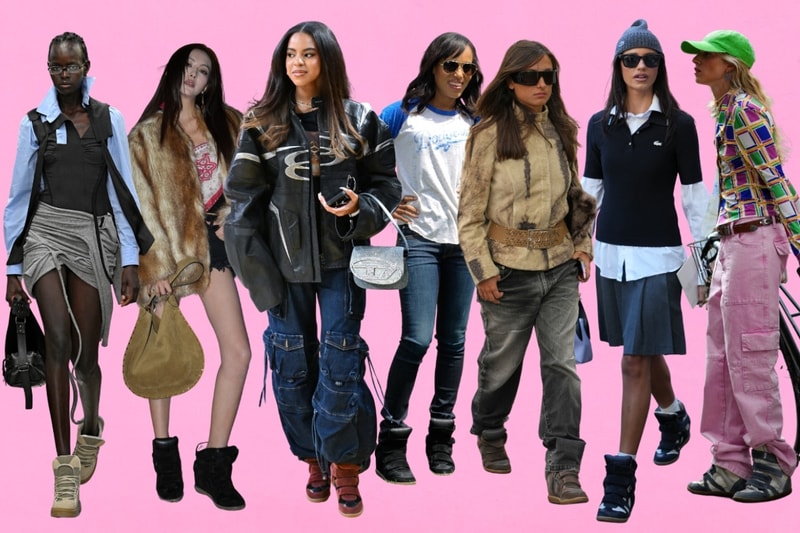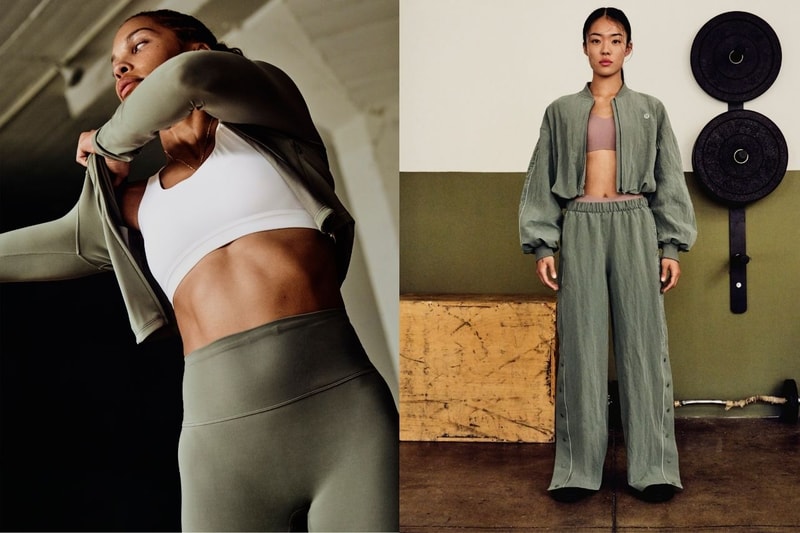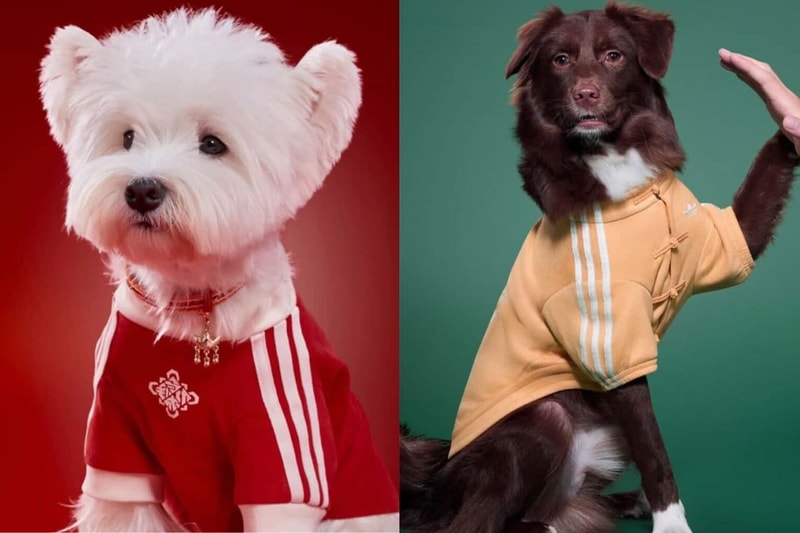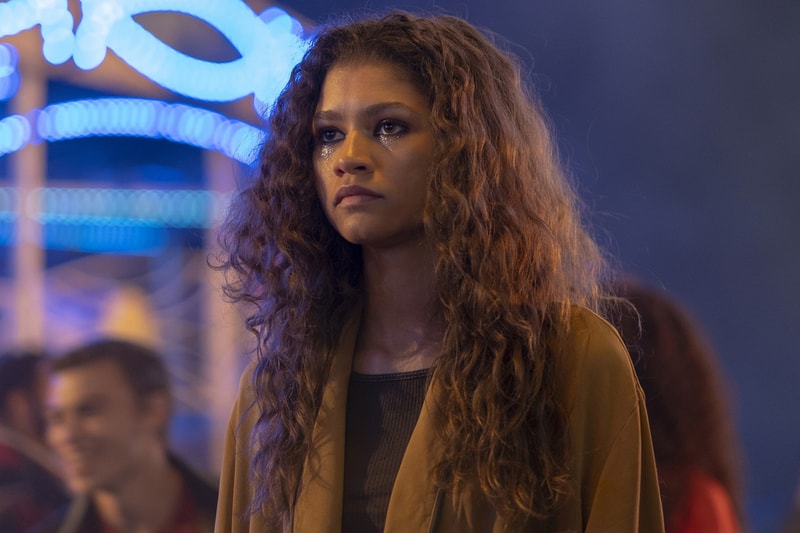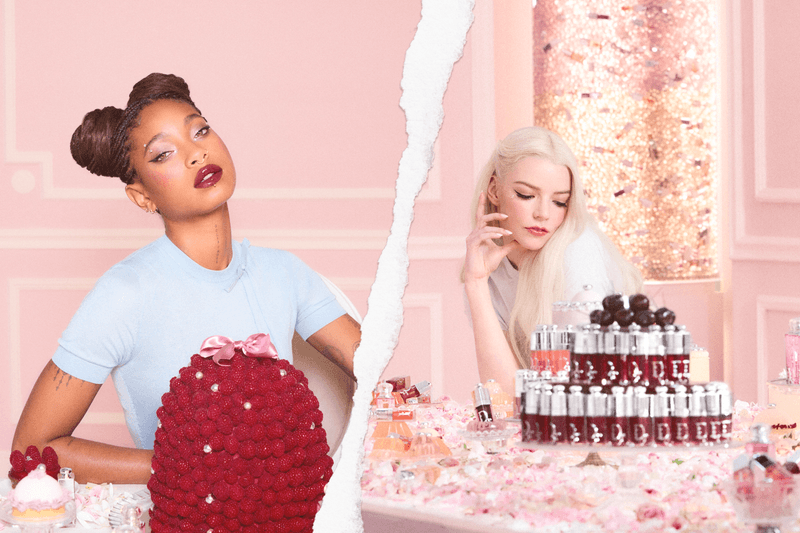Gen Z Magazine Our Era Spotlights Young Creators For Mental Health Awareness Month
info@hypebae.com (HYPEBAE) Sat, 21 May 2022 HYPEBAE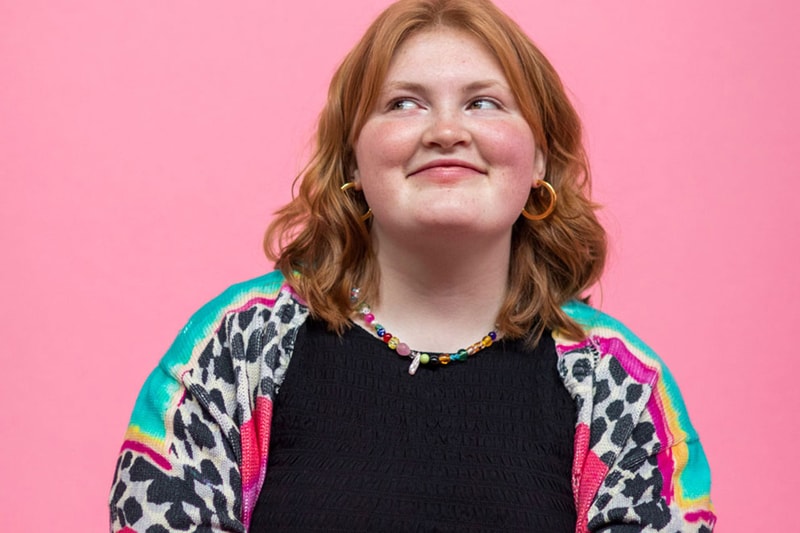
In a series of conversation-sparking cover stories, enlightening interviews and insightful editorial pieces covering boundary-breaking creatives and the layered facets of culture they’ve influenced, teen-oriented magazine Our Era has reshaped the landscape of the media industry for an up-and-coming generation.
Curated by the forward-thinking mind of 18 year old editor-in-chief Lucy Ivey, who started the magazine at 15 years old, Our Era has helped pave the way forward for Gen Z creatives and change-makers by amplifying their voices and highlighting their trailblazing pursuits in every print and digital edition of the magazine. In the two years since Our Era has solidified itself in the media scene, Ivey has spearheaded five issues, cultivated an impressive roster of cover stars and has collaborated with major brands like Steve Madden to celebrate Women’s History Month.
In a similar vein, the Gen Z magazine now applies its unrivalled editorial voice to another set of cover stories, this time for Mental Health Awareness Month in partnership with Instagram. Shining a light on four, young and emerging Instagram creators, the new editorial features hone in on each talent’s approach to destigmatizing mental health in their diverse communities by practicing intentional living and wellness habits. Featuring writer Tauri Janée, queer Asian-American artist and influencer Kim Saira, teen creator Mikah Jones and queer indigenous Inuk creator Serqininguak Ketura, each of the incisive pieces, written by Ivey and Our Era Features editor Ella Edwards, explore the Gen Z talents’ upbringings and modes of self-expression, spanning from art to activism.
For the latest edition of Our Era, the four creators and Ivey were dressed and styled in befitting outfits by stylist Bernadet Davood. Fusing her distinct style aesthetic with each creator’s unique identity, Davood deftly curated dazzling looks utilizing pieces from independent brands who are representative of the same beliefs, ethos and philosophies of Gen Z.
The Instagram x Our Era cover stories are available now on the Our Era’s website. Continue reading for a candid conversation between Hypebae, Ivey and the creators as they share the pioneering light that defines their generation.

Lucy Ivey
Founder and editor-in-chief of the teen-geared magazine, Lucy Ivey has a curated an inclusive and supportive safe space for Gen Z creatives like her.
As the editor-in-chief of Our Era Magazine, why is it vitally important to use your magazine and platform to advocate for mental health awareness and destigmatize mental health perceptions?
We are the first generation of digital natives. We grew up with social media and have information at our fingertips at all times. It is extremely hard to catch a break. With this campaign, I want to encourage other gen-z-ers to open up about their mental health, about how they manage it, and the role intentionality plays in setting healthy boundaries. It’s important that we feel okay about addressing these things.
With Our Era, what do you hope to achieve through placing emphasis on social and justice issues, and how is the magazine being used as a vehicle to create positive change?
What we aim to achieve is to give Gen Zers a platform that is their own — a "for Gen Z by Gen Z" space for their creative light to shine. With Our Era, we are building a community of Gen Z creatives who can find comfort and connection with fellow artists and followers of their craft. Art in all of its forms is a powerful way to address social justice issues, get a message across, and bring positive change. Art and social justice intersect in so many ways. A zine is a great way to talk about mental health and explore these issues. Our Era is excited to work with Instagram. It’s such an amazing platform for amplifying the great work and causes that are important to our generation. I hope this campaign will foster greater conversations and openness about mental health. Our generation struggles so much with anxiety and depression and it’s important that we see representation of these issues in the media.
What advice would you offer to those who are struggling with their mental health and what are some ways you've been able to overcome your own personal hurdles surrounding mental health?
I have been dealing with anxiety and depression for a long time. What helps me feel a little less alone is knowing that — although it may feel dark and lonely at times — there are other people in the world that are struggling with similar things. As scary as it can be, it is so important to talk to people, to find connection with others, to express yourself; to give your problems a space to breathe in — and to not be afraid to seek help. There are people out there that care, even when the voice in your head is screaming otherwise.

Tauri Janée
A writer and creator, Tauri Janée practices pleasure activism and uses her creative craft as a mode of self-discovery and group-exploration.
To those who may not be aware, what is pleasure activism and how were you first introduced to it along with ways you’ve been able to participate?
I was introduced to pleasure activism in the summer of 2021 through a friend. It is defined in many ways by Adrienne Maree Brown, but my favorite definition is the practice of making activism and liberation one of the most pleasurable experiences one can have. I participate in pleasure activism in a multitude of ways, whether it be creating spaces for communal joy through my journaling workshops or dancing with strangers on the subway platform. Brown has a quote in which she says "if I want to prove to other black women that they can access pleasure, then it really matters that I experience pleasure myself." This resonates with me deeply because I want women to know how transformative joy can be in their lives. Powerful things can happen when we center positive experiences. When you’re in a writing workshop, laughing from your belly in a room filled with strangers, that experience sticks with you. It shapes your empathy and sets a standard for what you expect out of life. You realize that the "work" is really connecting with others and creating spaces where love can lead.
What are key lessons you’ve been able to decipher about yourself and others through your creative medium?
The key lesson I’ve learned is that joy is the ultimate healing tool. We live in a culture that feeds off crises. Every day we learn that there is something to be outraged about or fearful of. While I don’t want to dismiss the value of those feelings, I think we underestimate how important and how empowering collective joy can be. That’s the end goal after all, right? We all want to be happy at the end of the day. Why aren’t we taking advantage of the spaces and practices that produce those feelings? I don’t want the narratives that surround my life to be centered around suffering. I want to know that there is a lot of good in the world. And that the reason we take to the streets and protest is not only because we’re angry but also because we love each other.
How has the artwork of marginalized communities inspired you in your craft?
I think the art that emerges out of marginalized communities is the purest form of pleasure activism. It is people who, despite suppression or whatever disadvantages they face, are saying out loud that they are still capable of creating beauty in their world. That is radical to me.
Can you expand upon why joy is not only empowering but transformative?
Feelings are powerful. We understand this when we’re talking about anger or sadness. We say "Oh! That person was angry. That’s why they committed this crime" or, "Oh! That person was sad. That’s why they isolated themselves." Joy is no different. When people feel good, they do good. Think of the destruction we’ve seen over time from collective anger. Is it not possible for collective joy to have an equally powerful impact? It’s important for me to emphasize community when making this connection, because it’s one thing to feel good on your own, it’s another to experience this feeling as a collective. We need to be asking ourselves how can the collective experience radical joy and what will come out of that. Of course it starts on a personal level with you saying I’m going to prioritize the things that bring me pleasure. Then you start asking yourself, how can I help others feel empowered in the same way?

Kim Saira
With her digital designs about mental health, Asian American creator, Kim Saira encourages her peers to be intentional with their wellbeing while working to destigmatize mental health in her Southeast Asian community.
As an Asian American immigrant, how are you using your platform to create meaningful, impactful change?
Something I recognize and try to be very cognizant of is that people who follow me are allowing me to take up space on their Instagram feeds. So, even though I spend my time and energy creating content, people who follow me spend their time and energy looking at it. Because of this, I try to be as transparent as I can about my experiences and journey as an Asian American, immigrant and human. So much of my own Filipino-American history and nuanced experiences aren't represented in the media (or even taught in schools) so I'm very grateful to have a platform that allows for me to speak on issues regarding mental health, my own personal healing journey, how it's constantly evolving and changing and other Asian American-related issues. Overall, I think one of the best ways we can continue to learn from each other, so that we can all collectively contribute to a more loving world, is by listening and learning from other peoples' life experiences while reflecting on our own and I think telling my own vulnerable stories and viewpoints through my platform is how I try to show up meaningfully.
How do you harness the power of art as a mode for social justice activism?
Art has always been an extremely impactful tool in order to get thoughts or emotions across to an audience. Using art, I make infographics (which are basically just short, digestible pages that talk about my take on a specific topic). Infographics are one way to get my experiences, words or action items out to a greater audience, to hopefully provoke more loving, impactful change. Also, not everyone can volunteer for organizations or attend rallies in-person, so using artistic modalities (like infographics) is more accessible.
Why is it important to create awareness surrounding mental health and destigmatize the conversation within your community and amongst your peers?
Growing up, I had no idea what the concept of "mental health" even was. I had such minimal emotional regulation, fueled by trauma coming from all sorts of places. I didn't even seek therapy (or really understood the importance of it) until I was at my lowest point in 2020. And I am not alone in my experiences (in fact, I've been able to connect with other Asian Americans because of this shared experience). According to Mental Health America, Asian Americans are the least likely group to seek any sort of mental health resources or ask friends or family for help. This is perpetuated by factors like language barriers, cultural stigma, cost, lack of AAPI therapists due to high systemic barriers to become therapists and more.
This is why creating awareness and accessibility to healing resources are so important, even beyond "mental health month." The reality is, there are folks that feel alone, afraid or "othered" if they know that they need assistance and not everyone can afford therapy. There are so many nuances that go beyond "mental health" posts on social media. Therefore in my opinion- having more open, vulnerable dialogue, learning to hold space for others and creating a safe space for folks to talk about their mental wellbeing is important for reducing stigma and creating more wellness inclusivity.
What measures do you take to ensure that you are practicing mindfulness and being intentional about caring for your wellbeing?
My mindfulness and healing modalities have shifted and changed throughout the years, especially because my job relies on me being "online" on social media. I do my best to take intentional, offline pauses (though sometimes it's hard). I also try to practice self-compassion and I do this by actually affirming myself verbally (even in front of a mirror), or through journaling. Personally, one of the best ways I practice mindfulness is by "observing my mind." Usually I do this by putting on music like sound bowls, lying down and doing nothing for a given period of time. This is because there are thousands of thoughts I am thinking everyday without even realizing how they're affecting my mental wellbeing.
Something else I'm extremely intentional about is what I choose to listen, watch and read. We're living in an era where instant gratification, "trends," and shock-value are being marketed in the masses and so much of our own innate energy is being outsourced to those outlets. So for example, I try to be cognizant of the lyrics of music that I listen to or minimize following pop culture.
I'm also so grateful to have a support system who checks in on me whenever they sense that I could use time for quiet and grounding and I'm learning to strengthen my boundaries and know if I'm consciously putting myself in situations that aren't serving me.

Mikah Jones
Mikah Jones is the teen Instagram creator who uses their social media platform to guide their peers through a series of guided healing and spiritual sessions.
What motivated you to enlighten your community with a series of guided sessions in your healing space?
I view everything I share online as a service to my younger self. It took me 10 long years to get to where I am right now but I’m still, of course, healing and growing myself. I strive to help people shorten their journey back to themselves, by learning to love and embrace the pains of their past and accept themselves fully. They won't need to go on a 10 year journey like myself; constantly unstable and suicidal. They can simply take the fast route to the love they have within themselves.
Many of those who come across my videos are seeking happiness, control over their emotions, joy and love. Therefore, I view everyone who follows me and stumbles upon my videos as extensions of myself. Right now bringing people into my healing space and guiding them through all the lessons that I have learned is what the younger me and my audience needs right now.
Why is it important to make wellness practices such as meditation accessible to everyone?
Suffering is a choice but it’s only a choice if you understand the relationship you’re supposed to play in your suffering. Practices like meditation place you in a movie theater where you are watching your own movie with your emotions, thoughts, and worries about past regrets on full display. Many of us are living life full throttle with no brakes, we just go go go all the time, not aware of how we feel. We’re not aware of our power or how we can change things. We are simply reacting to every moment of our life rather than experiencing, living and embracing it at our own pace. We allow our external environment to dictate our internal world far too much.
Having a practice like meditation helps to make life simple. Life is not complicated, it is actually very simple. However, when we’re caught in the thick of responsibilities, desires and relationships it feels overwhelming and complicated.
Meditation helps you to live your life from inside the movie theater, fully aware of your emotions. For some that sounds like disassociation but truthfully the less attached you are to every experience you’re having the more you can experience that thing fully and still be free.
Meditation creates freedom within your internal world. It doesn’t allow the external environment to dictate your internal wellbeing.
What sparked your "self-exploration journey" and how have you remained on the path of cultivating your highest self?
In order to cultivate your higher self you must commit to yourself. Spiritual practice -- all the "woo woo" stuff -- are the tools that every monk or spiritual guru has used to achieve their higher self. All you need to do is simply love, understand and accept yourself. Tools such as meditation, yoga and breath work all help you to understand, regulate and bring awareness to your thoughts and feelings about how you’re experiencing life.
Cultivating your highest self, I’ll admit, is a very silly term, but it is simply the love that lives inside of you. It’s the same thing that’s watching the thoughts and the same thing they gave your body life. My self has brought me to experience very hurtful things from such a beautiful place, cultivating my highest self has removed a lot of prolonged suffering from my life. I’m not allowing depression to go on for weeks or days. I’m also not allowing my anxiety to control my next actions by addressing it through breathing.
You hold the keys to your own kingdom. Focus less on trying to be happy or "enlightened" and focus more on trying to understand yourself. Everything else will come from there.
What have you learned about yourself and others since exploring intentionality through meditation?
If I had to pick one, it would be safety. Meditation has helped me see the intention behind my actions throughout my whole life both in the present and especially in my past. We are all seeking safety which is just another word for love, validation or connection. Everyone’s intention whether it hurts another person or for their own selfish gain, all comes back to desiring that feeling of safety. We seek safety in relationships, friendships, work, travel and every aspect of our life.
All of the past actions I made as a kid were all for validation, acceptance from my parents, partner, fame or money. I did them because I believe they would make me safe, make me feel like, "I was enough" is another way to put it. Meditation has helped me see the reasons behind my behaviors and others behaviors and their reasons. Clarity within myself and understanding my own actions has helped me develop deep empathy and compassion for other people's actions whether they hurt me or not. We’re all seeking the same thing but we all learned healthy or unhealthy ways to receive that safety and that is why some of us suffer and others are happy.
There's no greater power than to understand yourself. Meditation has taught me this.

Serqininguak Ketura
Serqininguak Ketura is a queer, Indigenous Inuk from Greenland who focuses on the importance of living with purpose in their community and strives to normalize mental health conversations in indigenous cultures.
How have you led conversations about destigmatizing mental health in your community and what has the outcome been as a result?
In my community, I have always been open about mental health, especially my own. Talking loud about having bipolar affective disorder, having had a suicide attempt, depression, all of it. In my community, we don’t speak out loud about our feelings or mental health, at least not the elder generation. There have been many responses to this, though I will say that many people in my community have gained the courage to speak up and be open about their own mental health.
Why is it important to live with purpose and how has that been displayed in your Indigenous culture?
In our Indigenous culture, everyone always had a purpose in the community. Your strength was your purpose. Due to colonialism, these purposes have been lost and that’s how most people feel. Lost. To me, purpose is being who you are, who you truly are. Unfortunately, having been forced to be integrated into the Danish ways of living, we live in a reality where you have to try and be something else, to be like the Danes. To live with purpose is important because it gives you the opportunity to be yourself, to reach your own dreams, to be proud of your Indigeneity and to have a place in the community. Ultimately, to feel like you have a purpose.
What changes do you hope to make in the Indigenous community regarding mental health issues and ways it can positively impact the lives of others?
What I’m hoping for the future in my Indigenous community is a place where taboos are being broken, where people are open about their struggles, where not feeling good is normalized and where you can be accepted no matter your struggles.
